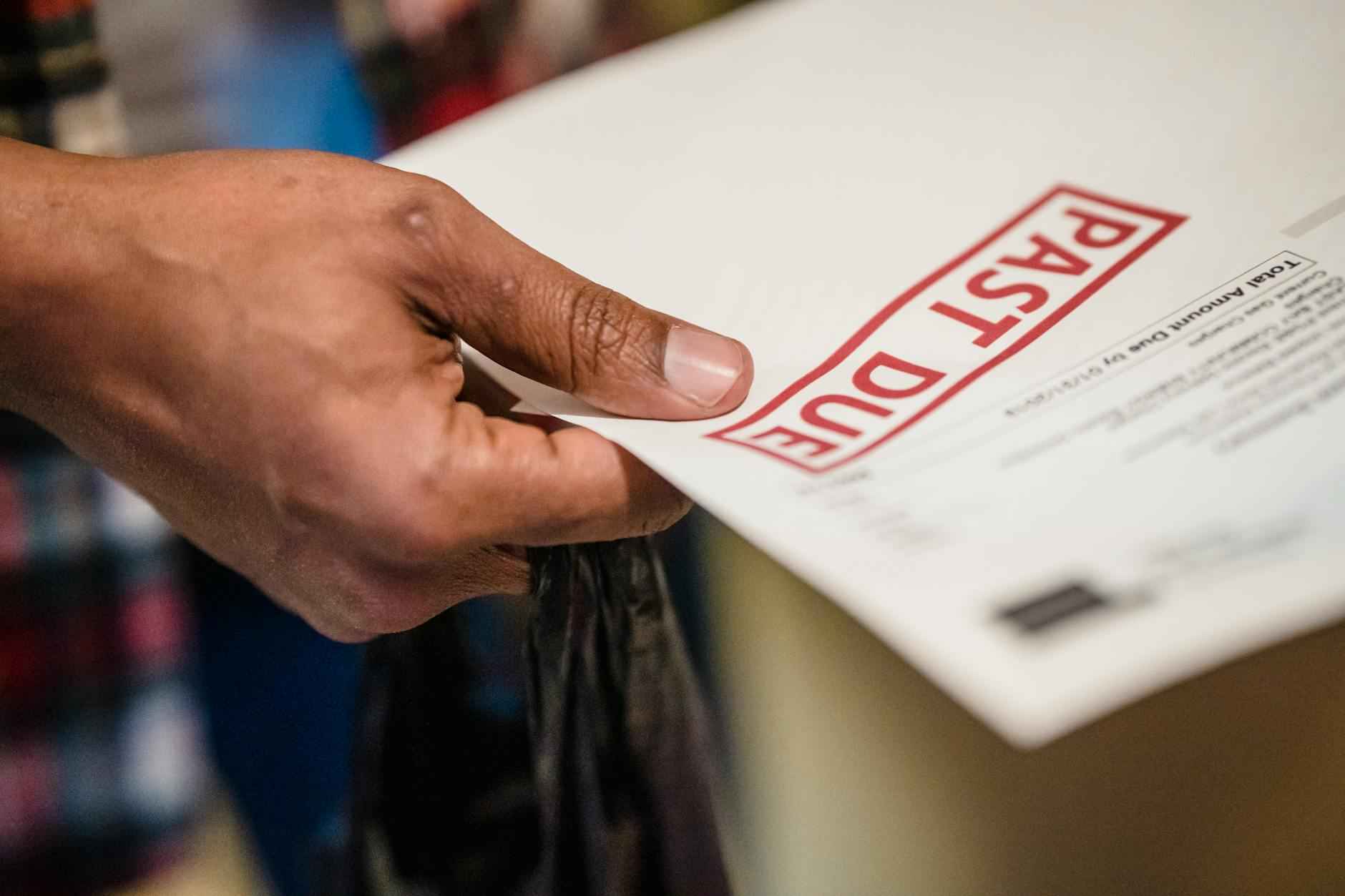This article explores the legal collection practices of Midland Credit Management, detailing what they can and cannot collect from consumers while providing insights into your rights and options.
Understanding Midland Credit Management
Midland Credit Management (MCM) is a prominent debt collection agency operating in the United States. Established in 1953, MCM specializes in the collection of unpaid debts from consumers. Their operations are focused on various types of debts, including but not limited to credit card debts, personal loans, and medical bills. Understanding how MCM operates is essential for consumers dealing with debt collection.
Types of Debts Midland Can Collect
MCM primarily collects consumer debts, which can be categorized as follows:
- Credit Card Debts: These are debts incurred from using credit cards, typically arising when consumers fail to make their monthly payments.
- Medical Debts: These debts are related to unpaid medical bills, which can accumulate quickly due to healthcare costs.
- Personal Loans: MCM also collects on personal loans, which may be unsecured or secured loans taken out by consumers.
How Midland Collects Debts
Understanding the collection methods employed by MCM is crucial for consumers. They utilize various tactics, including:
- Phone Calls: MCM often contacts debtors via phone to discuss the outstanding debts. Consumers should be aware of their rights during these calls.
- Written Correspondence: They send letters to inform consumers of the debts owed, which must adhere to specific legal guidelines.
- Legal Action: In some instances, MCM may resort to filing lawsuits to recover debts, particularly when other collection methods fail.
Your Rights as a Consumer
As a consumer, you have specific rights when dealing with debt collectors like MCM. The Fair Debt Collection Practices Act (FDCPA) provides protections, including:
- The right to be treated fairly and without harassment.
- The right to request verification of the debt.
- The right to dispute the debt if you believe it is invalid.
Disputing a Debt with Midland
If you believe that MCM is attempting to collect a debt that you do not owe, you have the right to dispute it. The process involves:
- Filing a Dispute: You can send a written request to MCM, asking for validation of the debt.
- Documentation: Keep records of all correspondence and any evidence supporting your claim.
Settling Debts with Midland
Settling your debt with MCM can sometimes be a viable option. This involves negotiating a lower amount than what you owe. Tips for effective negotiation include:
- Understanding your financial situation to propose a realistic settlement amount.
- Being aware of the potential impact on your credit score when settling a debt.
Conclusion: Navigating Debt Collection with Midland
Navigating debt collection can be challenging, but understanding your rights and options is crucial. Staying informed and proactive can help you manage your debts effectively.

Understanding Midland Credit Management
Midland Credit Management (MCM) is a prominent player in the debt collection industry, known for its focus on recovering unpaid debts from consumers. Established in the early 2000s, MCM has carved a niche by specializing in various types of consumer debt, ranging from credit cards to personal loans and medical bills. As a subsidiary of Midland Funding, LLC, they operate under strict regulations and guidelines that govern the debt collection process.
Operating from their headquarters in San Diego, California, Midland Credit Management employs a team of trained professionals who are well-versed in both the legal and ethical aspects of debt collection. Their mission is to recover outstanding debts while ensuring compliance with the Fair Debt Collection Practices Act (FDCPA) and other relevant state laws. This commitment to ethical practices helps maintain their reputation in an industry often criticized for aggressive tactics.
History and Development
Midland Credit Management has evolved significantly since its inception. Initially focused on purchasing charged-off debts from creditors, the agency has expanded its operations to include a broader spectrum of debt collection services. Over the years, MCM has invested in technology and training, allowing them to streamline their processes and improve communication with consumers.
In addition to its operational growth, MCM has also faced challenges, particularly in the form of legal scrutiny. Several lawsuits have been filed against the agency, primarily related to allegations of improper collection practices. However, Midland has consistently worked to address these issues, often settling disputes amicably and enhancing their compliance measures.
Types of Debts Midland Typically Handles
Midland Credit Management specializes in a variety of debt types, including:
- Credit Card Debts: One of the most common forms of debt, credit card debts arise when consumers fail to make timely payments on their credit card accounts. MCM actively pursues these debts, often working with creditors to collect outstanding balances.
- Personal Loans: Personal loans, which can be secured or unsecured, are another area of focus for MCM. The agency engages in collection efforts for loans that have gone into default, seeking to recover the owed amounts.
- Medical Bills: Medical debt is a significant burden for many consumers, and MCM has developed specific strategies to manage collections in this sensitive area. They often work with healthcare providers to facilitate payment plans for consumers.
- Utility Bills: Unpaid utility bills can also be a target for collection efforts. Midland may work with utility companies to recover these debts, which can include services like water, electricity, and gas.
Operational Strategies and Consumer Interaction
Midland Credit Management employs various strategies to engage with consumers and collect debts. Their approach includes:
- Communication: MCM utilizes phone calls, letters, and emails to contact debtors. They aim to provide clear information about the debt and the options available for repayment.
- Negotiation: The agency often offers flexible payment plans and settlements to encourage consumers to resolve their debts amicably. This approach not only helps recover funds but also fosters a more positive relationship with debtors.
- Legal Action: In cases where debts remain unpaid, Midland may resort to legal action. However, this is typically considered a last resort after other collection methods have been exhausted.
By understanding the operations and history of Midland Credit Management, consumers can better navigate their interactions with the agency. Awareness of the types of debts they collect and the strategies employed can empower individuals to manage their financial obligations effectively.

Types of Debts Midland Can Collect
Midland Credit Management is a prominent player in the debt collection industry, focusing primarily on various categories of consumer debt. Understanding the types of debts they can collect is essential for consumers who may find themselves in a situation where they are contacted by this agency. This section provides a deeper insight into the specific categories of debts Midland typically pursues.
- Credit Card Debts
- Medical Debts
- Personal Loans
- Student Loans
- Utility Bills
Credit card debts are among the most prevalent forms of debt that Midland Credit Management collects. These debts arise when consumers fail to pay their credit card bills on time, leading to an outstanding balance that accrues interest and late fees. When credit card companies deem these debts uncollectible, they often sell them to collection agencies like Midland. This process, known as a charge-off, significantly impacts the consumer’s credit score and can lead to aggressive collection tactics.
Medical bills can be a significant burden for many consumers, often leading to financial distress. Midland collects medical debts that arise from unpaid hospital bills, doctor visits, and other healthcare services. Unlike other types of debt, medical debt can be particularly challenging to manage due to the unpredictable nature of healthcare expenses. Consumers have certain protections under the law, and it is essential to understand these rights when dealing with medical debt collections.
Personal loans are another category of debt that Midland Credit Management pursues. These loans can originate from banks, credit unions, or online lenders and are often unsecured. When borrowers fail to repay these loans, the lenders may engage collection agencies like Midland to recover the outstanding amounts. Understanding the terms of the loan agreement and the implications of defaulting on a personal loan is crucial for consumers.
While Midland primarily focuses on consumer debts, it may also collect on defaulted private student loans. These loans are not backed by the federal government, making them more susceptible to aggressive collection practices. Consumers should be aware of their rights and options when dealing with student loan collections, especially in light of the various repayment plans and potential for loan forgiveness that may apply.
Unpaid utility bills, such as those for electricity, water, and gas, can also be collected by Midland. When consumers fail to pay their utility bills, service providers may turn to collection agencies to recover the outstanding amounts. Consumers should be proactive in communicating with utility companies to avoid collections and understand their rights regarding payment plans and assistance programs.
In summary, Midland Credit Management collects a wide range of consumer debts, including credit card debts, medical bills, personal loans, student loans, and utility bills. Understanding these categories can help consumers navigate their financial obligations and recognize their rights when dealing with debt collectors. It is crucial to stay informed and proactive in addressing any debts that may arise, ensuring that you are aware of the legal protections available to you.
Credit Card Debts
represent a significant financial burden for many consumers, and they are among the most frequently collected debts by Midland Credit Management. Understanding how these debts arise, their implications, and the legal framework surrounding their collection is crucial for consumers. In this section, we will explore the intricacies of credit card debt, including its origins, the process of collection, and your rights as a consumer.
Credit card debts typically arise when consumers fail to make payments on their credit card balances. This can happen for various reasons, including:
- Unforeseen Expenses: Sudden medical bills, car repairs, or job loss can lead to financial strain.
- Overspending: Some consumers may spend beyond their means without realizing the long-term impact.
- High-Interest Rates: Credit cards often come with high-interest rates, making it easy for debts to accumulate quickly.
When a credit card company deems a debt uncollectible after several months of missed payments, they may charge off the debt. A charge-off means that the creditor has written off the debt as a loss for accounting purposes, but this does not mean the debt is forgiven. Instead, the debt is often sold to collection agencies like Midland. This process can severely impact your credit score and can remain on your credit report for up to seven years.
Once a debt is charged off, Midland Credit Management may begin their collection efforts. It is important to understand the legal implications of this process:
- Fair Debt Collection Practices Act (FDCPA): This federal law protects consumers from abusive practices by debt collectors. Midland must adhere to these regulations, which include:
- Not calling outside of designated hours (usually before 8 AM or after 9 PM).
- Providing accurate information about the debt and the consumer’s rights.
- Not using threats or harassment to collect debts.
- State Laws: In addition to federal regulations, many states have their own laws governing debt collection, which may provide additional protections.
As a consumer, you have specific rights when dealing with debt collectors like Midland. These rights include:
- The Right to Dispute: If you believe that the debt is incorrect or that you do not owe it, you have the right to dispute it.
- The Right to Request Validation: You can ask Midland to provide proof that you owe the debt, including the original creditor and the amount owed.
- The Right to Cease Communication: You can request that Midland stop contacting you, although this does not eliminate the debt.
Navigating the complexities of credit card debt collection can be overwhelming. Understanding how debts arise, the charge-off process, and your rights under the FDCPA is essential for consumers facing collection efforts. By staying informed and proactive, you can better manage your financial obligations and protect yourself from potential abuses in the collection process.
Understanding Charge-Offs
When a credit card company decides to charge off a debt, it signifies a critical juncture in the debt collection process. A charge-off occurs when the creditor deems the debt as unlikely to be collected after a prolonged period of non-payment, typically around 180 days. This does not mean that the debt is forgiven; rather, it is a formal acknowledgment that the creditor has written the debt off as a loss for accounting purposes. Understanding this process is essential for consumers, particularly regarding its implications for credit scores and future financial opportunities.
What Does a Charge-Off Mean for Consumers?
For consumers, a charge-off can have significant repercussions. Once a debt is charged off, it is reported to credit bureaus, which can lead to a drastic drop in credit scores. A charge-off is considered a negative mark on a credit report, similar to a bankruptcy or foreclosure. This can hinder a consumer’s ability to secure new credit, obtain favorable interest rates, or even rent an apartment.
Moreover, just because a debt is charged off does not mean that it is no longer owed. The creditor may still pursue collection through various means, including selling the debt to a collection agency, which is where companies like Midland Credit Management come into play. Consumers may find themselves dealing with aggressive collection practices, even after a charge-off has occurred.
Impact on Credit Scores
The consequences of a charge-off on credit scores can be profound. Credit scoring models, such as FICO and VantageScore, consider charge-offs as serious delinquencies. The presence of a charge-off can lower a credit score by 100 points or more, depending on the individual’s overall credit history. This reduction can affect not only credit applications but also insurance rates and employment opportunities, as some employers check credit reports as part of their hiring process.
To illustrate the potential impact, consider the following table:
| Credit Score Range | Impact of Charge-Off |
|---|---|
| 300-579 | Very Poor – May struggle to obtain credit. |
| 580-669 | Fair – Higher interest rates likely. |
| 670-739 | Good – May still qualify for credit but with caution. |
| 740-799 | Very Good – Likely to receive favorable terms. |
| 800-850 | Excellent – Best rates available. |
What Happens After a Charge-Off?
After a charge-off, consumers may receive communication from the original creditor or a collection agency. It is crucial to understand that the debt remains valid, and consumers are still responsible for repayment. Here are some potential scenarios:
- Debt Collection: The creditor may pursue collection efforts directly or sell the debt to a third-party collection agency.
- Negotiation: Consumers may have the opportunity to negotiate a settlement for less than the full amount owed.
- Legal Action: In some cases, creditors may choose to file a lawsuit to recover the debt.
Steps to Take After a Charge-Off
Consumers facing a charge-off should take proactive steps to mitigate the impact on their credit and financial health:
- Review Your Credit Report: Obtain a copy of your credit report to understand the full extent of the impact and ensure accuracy.
- Communicate with Creditors: Contact the creditor to discuss repayment options or settlements.
- Consider Credit Counseling: Seek assistance from a credit counseling service to explore debt management strategies.
- Monitor Your Credit: Keep an eye on your credit report and score to track improvements over time.
In conclusion, while a charge-off represents a significant challenge for consumers, understanding the implications and taking informed actions can help mitigate its effects. It’s essential to stay informed, communicate with creditors, and explore options for rebuilding your credit over time.
Legal Rights Regarding Credit Card Debts
When it comes to managing credit card debt, understanding your legal rights is paramount. The Fair Debt Collection Practices Act (FDCPA) provides consumers with essential protections against abusive and unfair debt collection practices. Below, we will delve into the rights consumers possess, the implications of these rights, and how they apply specifically to credit card debt collection.
Under the FDCPA, consumers are safeguarded from various forms of harassment and misconduct by debt collectors. Here are some of the key rights that you should be aware of:
- Right to be Informed: Debt collectors must provide clear and accurate information about the debt they are attempting to collect. This includes the amount owed, the name of the creditor, and the consumer’s rights to dispute the debt.
- Right to Dispute: Consumers have the right to dispute the validity of the debt within 30 days of receiving a notice. If you dispute the debt, the collector must cease collection efforts until they provide verification of the debt.
- Protection Against Harassment: The FDCPA prohibits debt collectors from using abusive language, threatening violence, or making repeated calls intended to annoy or harass consumers.
- Right to Privacy: Debt collectors cannot disclose your debt status to third parties, including family members or employers, without your consent.
- Right to Cease Communication: Consumers can request that a debt collector stop contacting them. Once this request is made, the collector must cease communication, except to inform the consumer of specific actions being taken.
These rights are not only essential for protecting consumers but also serve to promote fair and ethical practices within the debt collection industry. Understanding these rights can significantly impact how consumers navigate the often-overwhelming process of debt collection.
When it comes to credit card debts, it’s important to recognize how these rights specifically apply. Credit card debts are typically unsecured debts, meaning they are not backed by collateral. This can make them particularly challenging for consumers, especially if they fall behind on payments. Here’s how your rights under the FDCPA come into play:
1. **Initial Communication**: Upon first contacting you, a debt collector must provide a written notice detailing the debt, including the amount owed and the creditor’s name.2. **Verification of Debt**: If you dispute the debt, the collector must provide documentation proving that you owe the amount they claim.3. **Limitations on Contact**: You can specify when and how debt collectors may contact you, such as limiting calls to certain hours.4. **Legal Action**: Should a debt collector choose to sue for unpaid credit card debt, they must follow specific legal procedures and cannot intimidate or mislead you during the process.
It’s also crucial to understand how state-specific laws may provide additional protections. Some states have enacted laws that offer more stringent regulations on debt collection practices than the FDCPA. For instance, certain states may limit the amount of interest that can be charged on overdue credit card debts or provide additional avenues for consumers to dispute debts.
In conclusion, being informed about your legal rights regarding credit card debts is essential for effective debt management. The FDCPA provides a framework for protecting consumers against unfair practices, and understanding these rights can empower you to take control of your financial situation. If you find yourself facing aggressive collection tactics, it’s advisable to consult with a legal expert who specializes in consumer rights to explore your options further.
Medical Debts
can be particularly burdensome for consumers, often leading to significant financial stress and anxiety. As healthcare costs continue to rise, many individuals find themselves unable to pay their medical bills, which can result in collections by agencies such as Midland Credit Management. This section examines how Midland manages medical debt collections, the tactics they employ, and the legal protections available to consumers facing such debts.
Midland Credit Management is known for its aggressive collection practices, particularly in the realm of medical debts. They often acquire these debts from healthcare providers when patients fail to pay their bills within a specified timeframe. Once a debt is assigned to Midland, they initiate their collection process, which can include various strategies to recover the owed amount.
Understanding the Collection Process
- Initial Contact: Midland typically begins its collection efforts with a series of phone calls and written notices. These communications are meant to inform the consumer of the outstanding debt and urge them to make a payment.
- Payment Plans: In many cases, Midland may offer flexible payment plans to consumers struggling to pay their medical debts. This approach is designed to make repayment more manageable.
- Legal Action: If initial collection efforts fail, Midland may resort to legal action. This can include filing a lawsuit to recover the debt, which can lead to wage garnishments or bank levies if the court rules in their favor.
Legal Protections for Consumers
Consumers facing medical debt collections have certain rights under the Fair Debt Collection Practices Act (FDCPA). This federal law outlines what debt collectors can and cannot do, ensuring that consumers are treated fairly. Key protections include:
- Harassment Prohibition: Debt collectors cannot engage in abusive or harassing behavior when attempting to collect a debt.
- Verification of Debt: Consumers have the right to request verification of the debt, which requires the collector to provide proof that the debt is valid.
- Restrictions on Contact: Consumers can request that collectors cease communication, and they must comply with this request.
Additionally, many states have their own regulations that provide further protections against aggressive collection tactics. It is essential for consumers to be aware of both federal and state laws governing debt collection to ensure their rights are upheld.
Strategies for Managing Medical Debt
When dealing with medical debts, consumers can take several proactive steps to manage their situation effectively:
- Communicate with Healthcare Providers: Before a debt is sent to collections, consumers should reach out to their healthcare providers to discuss payment options or financial assistance programs.
- Negotiate with Midland: If a debt has already been assigned to Midland, consumers may still negotiate the terms of repayment. This could involve settling the debt for a lower amount or establishing a payment plan that fits their budget.
- Seek Financial Counseling: Consulting with a financial counselor can provide consumers with personalized strategies for managing their debts and improving their financial health.
In summary, while medical debts can create significant challenges for consumers, understanding the collection practices of agencies like Midland and knowing your legal rights can empower individuals to navigate these situations more effectively. By employing proactive strategies and seeking assistance when needed, consumers can work towards resolving their medical debts while minimizing the impact on their financial well-being.
Personal Loans
Personal Loans: Understanding Collection Practices and Legal Framework
Personal loans are a significant area of concern for both consumers and collectors alike. As Midland Credit Management focuses on these loans, it is essential to understand the intricacies of how they are collected and the legal framework that governs personal loan debt. This section will delve into the methods used for collecting personal loans, the rights of consumers, and the implications of defaulting on such loans.
Personal loans are unsecured loans that individuals can use for various purposes, such as consolidating debt, financing a major purchase, or covering unexpected expenses. Unlike secured loans, personal loans do not require collateral, making them accessible to a broader range of consumers. However, this also means that lenders face higher risks, which can lead to stringent collection practices when borrowers default.
Midland employs various methods to collect personal loan debts. Understanding these methods can empower consumers to navigate the collection process more effectively.
- Direct Communication: Midland often initiates contact through phone calls and letters. These communications aim to remind consumers of their outstanding debts and encourage repayment.
- Payment Plans: In some cases, Midland may offer structured payment plans to help consumers manage their debts. This approach can provide relief to those struggling to pay their loans in full.
- Legal Action: If debts remain unpaid, Midland may resort to legal action. This can include filing a lawsuit to recover the owed amount, which can lead to wage garnishments or bank levies if successful.
The collection of personal loan debts is regulated by various laws designed to protect consumers. Understanding these laws can help individuals know their rights and obligations.
| Law | Description |
|---|---|
| Fair Debt Collection Practices Act (FDCPA) | This federal law prohibits abusive, deceptive, and unfair debt collection practices. It provides consumers with rights regarding how and when they can be contacted. |
| State-Specific Laws | Many states have their own regulations that offer additional protections for consumers, including limits on interest rates and the time frame for debt collection. |
As a consumer, it is crucial to know your rights when dealing with debt collectors like Midland. Here are some key rights under the FDCPA:
- Right to Information: Consumers have the right to request detailed information about the debt, including the amount owed and the original creditor.
- Right to Dispute: If you believe the debt is inaccurate, you can dispute it in writing. Midland must cease collection efforts until the dispute is resolved.
- Protection Against Harassment: Debt collectors cannot use abusive language, threaten violence, or make repeated calls intended to annoy or harass.
Defaulting on a personal loan can have severe consequences. Here are some potential outcomes:
- Credit Score Impact: Defaulting can significantly lower your credit score, affecting your ability to obtain future credit.
- Legal Consequences: If Midland takes legal action, you may face court judgments, which can lead to wage garnishments or asset seizures.
- Increased Debt: As collection efforts continue, additional fees and interest may accrue, increasing the total amount owed.
In conclusion, understanding the collection practices surrounding personal loans and the legal framework in place is essential for consumers. By being informed of their rights and the potential implications of defaulting, individuals can make better financial decisions and navigate the complexities of debt collection more effectively.

How Midland Collects Debts
Understanding how Midland Credit Management collects debts is essential for consumers facing financial challenges. Knowing their collection methods can empower you to respond appropriately and protect your rights. Midland employs a variety of tactics to recover outstanding debts, which we will explore in detail.
1. Communication Tactics: Phone Calls and Letters
Midland primarily uses phone calls and written correspondence as their main modes of communication with debtors. They may initiate contact through phone calls to discuss the debt and seek payment. These calls are often followed by letters that provide detailed information about the debt, including the amount owed and the creditor’s name.
It is important to note that Midland must adhere to the guidelines set forth by the Fair Debt Collection Practices Act (FDCPA). This act regulates how debt collectors can communicate with consumers, ensuring they do not engage in abusive or deceptive practices. For example, Midland cannot call you at unreasonable hours or use threatening language. If you receive a call or letter, it is crucial to document the communication for your records.
2. Legal Action and Lawsuits
In some instances, Midland may escalate their collection efforts by pursuing legal action. This typically occurs when they believe that other methods of collection have failed. If a debt remains unpaid for an extended period, Midland may file a lawsuit to obtain a judgment against you. This judgment can lead to wage garnishments or bank levies, so it is essential to take any legal notices seriously.
Before filing a lawsuit, Midland is required to provide you with a written notice of the debt and an opportunity to dispute it. If you believe the debt is invalid, it is your right to challenge it before any legal action is taken. Seeking legal advice is advisable if you find yourself facing a lawsuit from Midland.
3. Payment Plans and Negotiations
Midland often seeks to negotiate payment plans with consumers who are struggling to pay their debts in full. They may offer options such as settlement agreements or installment plans that allow you to pay off the debt over time. Understanding the terms of these agreements is vital, as they can impact your financial situation and credit score.
When negotiating with Midland, it is important to be clear about your financial capabilities. You should not agree to a payment plan that you cannot afford, as this could lead to further complications. Document all agreements in writing and retain copies for your records.
4. Reporting to Credit Bureaus
Midland may report your unpaid debts to the major credit bureaus, which can negatively impact your credit score. This reporting typically occurs after the debt has been outstanding for a certain period. Understanding how this process works can help you make informed decisions about addressing your debts.
If you successfully negotiate a settlement or pay off the debt, Midland is obligated to update the credit bureaus accordingly. However, it may take time for these changes to reflect on your credit report. Regularly monitoring your credit can help you ensure that your report accurately reflects your financial status.
5. Consumer Rights and Protections
As a consumer, you have rights when dealing with debt collectors like Midland. The FDCPA provides protections against unfair practices, allowing you to dispute debts and request validation. If you feel that Midland is violating your rights, you can file a complaint with the Consumer Financial Protection Bureau (CFPB) or seek legal counsel.
Understanding these rights is crucial for navigating debt collection processes. Consumers should never hesitate to assert their rights and seek assistance when needed.
In summary, Midland Credit Management employs various methods to collect debts, including phone calls, written communication, and legal action. Being informed about these tactics can help consumers navigate the debt collection landscape more effectively and protect their financial interests.
Phone Calls and Letters
are integral components of Midland Credit Management’s debt collection strategy. Understanding how these communications work can empower consumers and help them navigate the often stressful experience of dealing with debt collectors.
Midland Credit Management employs various methods to contact debtors, primarily through telephone calls and written correspondence. Each method comes with its own set of guidelines and consumer expectations, which we will explore in detail.
When Midland reaches out via phone, they are typically looking to discuss an outstanding debt. It’s important for consumers to know their rights during these calls. According to the Fair Debt Collection Practices Act (FDCPA), debt collectors are prohibited from using abusive language or engaging in harassing behavior. Here are a few key points to consider:
- Identification: Collectors must identify themselves and the purpose of the call.
- Time Restrictions: Calls should be made during reasonable hours, generally between 8 a.m. and 9 p.m.
- Right to Request Communication Changes: Consumers can request that Midland cease contact or only communicate in writing.
It’s advisable for consumers to keep a record of any phone calls, including the date, time, and details of the conversation. This documentation can be crucial if disputes arise later.
In addition to phone calls, Midland frequently sends written correspondence to debtors. This can include letters, notices, and statements. These communications serve several purposes:
- Initial Notice: The first letter from Midland typically outlines the debt amount, the creditor, and the consumer’s rights.
- Payment Options: Subsequent letters may provide options for payment plans or settlements.
- Legal Notices: If the situation escalates, Midland may send legal notices regarding potential lawsuits.
Consumers should carefully review all written correspondence to ensure accuracy. If a consumer believes that the debt is incorrect, they have the right to dispute it. Under the FDCPA, consumers can send a written dispute to Midland within 30 days of receiving the initial notice.
When dealing with Midland, consumers should expect clear communication and adherence to legal guidelines. However, it’s also important to remain vigilant. Here are some expectations:
- Professionalism: Midland representatives should conduct themselves in a professional manner, adhering to the regulations set forth by the FDCPA.
- Transparency: Consumers should receive clear and concise information regarding their debts and any actions being taken.
- Respect for Rights: Consumers have the right to ask questions and seek clarification about any aspect of their debt.
In conclusion, understanding the methods of communication used by Midland Credit Management can significantly impact how consumers handle their debt situations. By being informed and proactive, consumers can better navigate the collection process and protect their rights.
Legal Action and Lawsuits
Debt collection can be a daunting experience for many consumers, and understanding the potential for legal action is essential. Midland Credit Management, like other debt collection agencies, may resort to lawsuits to recover unpaid debts. This section delves into the circumstances under which Midland may file a lawsuit, the legal framework surrounding such actions, and what consumers should know to protect themselves.
Midland Credit Management typically initiates legal action when other collection efforts have failed. This might include persistent phone calls, letters, or other communication attempts. If they believe that a debtor has the means to pay but is unwilling to do so, they may consider litigation as a viable option. However, it’s important to note that Midland must adhere to specific legal guidelines when pursuing a lawsuit.
Before filing a lawsuit, Midland is required to provide the debtor with a written notice of the debt, including the amount owed and the creditor’s name. This is mandated by the Fair Debt Collection Practices Act (FDCPA), which aims to protect consumers from abusive debt collection practices. If the debtor disputes the debt or requests verification, Midland must respond appropriately before proceeding with legal action.
Once a lawsuit is filed, the process typically begins with the delivery of a summons and complaint to the debtor. This document outlines the nature of the debt, the amount owed, and the legal basis for the claim. Debtors have the right to respond to the summons, and it is crucial to do so within the specified timeframe. Failing to respond can result in a default judgment, which can lead to wage garnishment or bank levies.
Here are some key points consumers should know regarding legal action by Midland:
- Right to Representation: Consumers have the right to hire an attorney to represent them in court. This can be beneficial in negotiating settlements or defending against the lawsuit.
- Statute of Limitations: Each state has a statute of limitations that limits the time frame in which a creditor can sue for a debt. Understanding this timeframe can help consumers determine whether a lawsuit is valid.
- Potential Outcomes: If Midland wins the lawsuit, they may be awarded a judgment, allowing them to pursue collection methods such as wage garnishment or bank account levies. If the consumer wins, the debt may be dismissed.
- Negotiation Opportunities: Even after a lawsuit is filed, there may still be opportunities to negotiate a settlement. Midland may be willing to accept a reduced amount to resolve the debt.
It is vital for consumers to keep detailed records of all communications with Midland and to respond promptly to any legal documents received. Ignoring a lawsuit can have serious financial consequences, so staying informed and proactive is key.
In conclusion, while Midland Credit Management may resort to legal action to collect debts, consumers have rights and options available to them. Understanding the legal process and knowing how to respond can make a significant difference in managing debt effectively. If faced with a lawsuit, seeking legal advice can provide clarity and guidance through the process.

Your Rights as a Consumer
When dealing with debt collectors such as Midland Credit Management, it’s essential to understand that you, as a consumer, have specific rights designed to protect you from unfair practices. These rights are primarily outlined in the Fair Debt Collection Practices Act (FDCPA), which aims to ensure that debt collection is conducted in a fair and respectful manner. This section will provide a comprehensive overview of your rights and how to protect yourself when interacting with debt collectors.
- Right to Be Informed: You have the right to be informed about the debt being collected. This includes the total amount owed, the name of the creditor, and your rights regarding the debt.
- Right to Dispute: If you believe the debt is incorrect or you do not owe it, you have the right to dispute it. You must notify the collector in writing within 30 days of receiving the initial notice.
- Right to Privacy: Debt collectors are prohibited from discussing your debt with unauthorized third parties. They must respect your privacy and cannot disclose your debt status to family members, friends, or employers.
- Right to Cease Communication: You have the right to request that a debt collector stop contacting you. Once you make this request in writing, they must cease communication, except to inform you of any further legal action.
- Right to Fair Treatment: Under the FDCPA, debt collectors cannot harass, oppress, or abuse you. This includes making threats, using obscene language, or repeatedly calling you at inconvenient times.
Understanding these rights is crucial to ensuring that you are treated fairly during the debt collection process. However, it’s equally important to know how to effectively protect yourself.
How to Protect Yourself from Debt Collectors
Knowing your rights is the first step; the next is taking action to protect yourself. Here are some practical steps you can take:
- Document Everything: Keep detailed records of all communications with debt collectors. This includes dates, times, names of representatives, and the content of conversations. Documentation can be vital if disputes arise.
- Request Validation: If you receive a call from Midland or any debt collector, request validation of the debt. This means asking them to provide proof that you owe the debt and that they have the legal right to collect it.
- Know Your State Laws: In addition to the FDCPA, many states have their own debt collection laws that may offer additional protections. Familiarize yourself with these laws to ensure you are fully informed.
- Consult a Professional: If you feel overwhelmed or unsure about your rights, consider consulting with a legal professional who specializes in consumer rights or debt collection issues. They can provide guidance tailored to your situation.
- Be Cautious with Payments: If you decide to negotiate a payment plan or settlement, ensure that you get any agreements in writing before making payments. This protects you from potential misunderstandings.
By taking these proactive measures, you can better navigate interactions with debt collectors and safeguard your rights. Remember, you are not alone in this process, and there are resources available to assist you.
Conclusion
Understanding your rights as a consumer when dealing with debt collectors like Midland is crucial for protecting yourself against unfair practices. By being informed and proactive, you can navigate the debt collection process with confidence and ensure that your rights are respected.
Fair Debt Collection Practices Act (FDCPA)
The is a crucial piece of legislation designed to protect consumers from unethical debt collection practices. Enacted in 1977, this federal law establishes guidelines that debt collectors must follow when attempting to collect debts, ensuring that consumers are treated fairly and with respect. In this section, we will delve into the key provisions of the FDCPA, its implications for consumers, and how it serves as a safeguard against abusive practices.
The FDCPA outlines several important provisions aimed at regulating the behavior of debt collectors. Here are some of the most significant aspects:
- Communication Restrictions: Debt collectors are prohibited from contacting consumers at inconvenient times, such as before 8 a.m. or after 9 p.m., unless the consumer agrees to it. They are also forbidden from contacting consumers at their workplace if they know that the employer disapproves.
- Harassment and Abuse: The FDCPA strictly prohibits debt collectors from using abusive language, threats, or any form of harassment. This includes the use of profane language or repeated calls intended to annoy the consumer.
- False or Misleading Representations: Collectors cannot make false statements regarding the amount owed, the legal status of the debt, or the consequences of non-payment. This provision protects consumers from misleading tactics.
- Validation of Debts: Consumers have the right to request validation of the debt within 30 days of the initial communication. Debt collectors must provide written verification of the debt, including the amount and the original creditor.
Understanding how the FDCPA protects consumers is essential for anyone dealing with debt collectors. Here are some key protections:
- Empowerment Through Information: The FDCPA requires debt collectors to provide essential information about the debt, empowering consumers to understand their obligations and rights.
- Right to Dispute: Consumers have the right to dispute any debt they believe is inaccurate or invalid. This allows individuals to challenge debts that may have been incorrectly assigned or reported.
- Legal Recourse: If a debt collector violates any provisions of the FDCPA, consumers can take legal action. This may include filing a complaint with the Consumer Financial Protection Bureau (CFPB) or pursuing a lawsuit against the collector.
Despite the protections offered by the FDCPA, violations still occur. Here are some common examples:
| Violation | Description |
|---|---|
| Excessive Calling | Calling multiple times a day or at odd hours. |
| Threats of Legal Action | Threatening to sue without the intent to do so. |
| Failure to Validate Debt | Not providing verification of the debt upon request. |
| Contacting Third Parties | Discussing the debt with friends, family, or employers without consent. |
In conclusion, the FDCPA serves as a vital framework for protecting consumers from aggressive and unethical debt collection practices. By understanding the provisions of this act, consumers can better navigate their rights when dealing with debt collectors. If you believe your rights have been violated, it is essential to take action, whether through disputing a debt, filing a complaint, or seeking legal counsel. Staying informed and proactive is key to ensuring fair treatment in debt collection.
State-Specific Laws
State-Specific Laws: Understanding Your Rights Beyond Federal RegulationsIn the realm of debt collection, understanding your rights is crucial. While the Fair Debt Collection Practices Act (FDCPA) provides a federal framework to protect consumers, many states have enacted their own laws that offer additional safeguards. These state-specific laws can vary significantly in terms of protections and regulations, making it essential for consumers to be aware of their local statutes.
- Variability Across States: Each state has the authority to create its own debt collection laws, leading to a patchwork of regulations across the country. For instance, some states may limit the hours during which debt collectors can contact consumers, while others may impose stricter guidelines on how debts can be collected.
- Statute of Limitations: The time frame in which a creditor can sue for unpaid debts varies by state. Most states have a statute of limitations ranging from three to six years, but some states extend this period. Understanding the statute of limitations in your state can help you determine whether a debt is legally enforceable.
- Licensing Requirements: Some states require debt collectors to be licensed. This means that if a collector is operating without a license, they may be violating state laws, giving consumers grounds for a complaint.
- Additional Consumer Protections: Certain states have implemented laws that provide further protections, such as prohibiting wage garnishment for specific types of debts or requiring debt collectors to provide more detailed information about the debts they are attempting to collect.
Examples of State-Specific Laws
To illustrate the diversity of state laws, here are a few examples:
| State | Specific Law | Description |
|---|---|---|
| California | California Rosenthal Fair Debt Collection Practices Act | This law expands upon the FDCPA, providing additional protections such as prohibiting collectors from contacting consumers at their workplace if they know the employer disapproves. |
| New York | New York Debt Collection Procedures Act | This act requires debt collectors to provide a validation notice within five days of contacting a debtor, detailing the debt amount and the creditor’s name. |
| Texas | Texas Debt Collection Act | Texas law prohibits debt collectors from using abusive language and allows consumers to sue for damages if they have been subjected to unfair practices. |
Why State-Specific Laws Matter
Understanding state-specific laws is vital for several reasons. First, they can provide additional layers of protection that can be beneficial in disputes with debt collectors. If you believe a collector has violated your rights, state laws may offer remedies that the FDCPA does not. Additionally, being informed about these laws can empower consumers to take action against unethical collection practices.
How to Stay Informed
To navigate the complexities of state-specific debt collection laws, consider the following steps:
- Research Your State’s Laws: Start by visiting your state’s attorney general’s website or a reputable legal resource to learn about your rights.
- Consult with a Legal Professional: If you’re facing significant debt collection issues, seeking legal advice can provide clarity and guidance tailored to your situation.
- Stay Updated: Laws can change, so it’s beneficial to stay informed about any new regulations or amendments that may affect your rights as a consumer.
In conclusion, while federal regulations provide a foundation for consumer protection, state-specific laws can enhance these protections significantly. By understanding the laws in your state, you can better navigate the debt collection process and assert your rights effectively.

Disputing a Debt with Midland
If you believe that Midland Credit Management is attempting to collect a debt that you do not owe, it is important to know that you have the right to dispute it. Disputing a debt is a formal process that allows you to challenge the validity of the debt and ensure that your rights as a consumer are protected. This section provides a comprehensive guide on how to effectively dispute a debt, what documentation you will need, and the potential consequences of filing a dispute.
Understanding Your Rights
Under the Fair Debt Collection Practices Act (FDCPA), consumers have the right to dispute debts that they believe are inaccurate or not owed. This federal law ensures that you can request verification of the debt from the collector. If you choose to dispute a debt, Midland must cease collection efforts until they provide you with the necessary documentation to validate the debt.
How to File a Dispute
Filing a dispute with Midland involves several key steps:
- Step 1: Gather Documentation – Collect any relevant documents that support your claim that the debt is not yours. This may include credit reports, payment records, or any correspondence you have had with Midland.
- Step 2: Write a Dispute Letter – Draft a formal dispute letter to Midland. In this letter, clearly state your intention to dispute the debt and include any supporting documentation. Be sure to include your personal information, the account number, and a detailed explanation of why you believe the debt is invalid.
- Step 3: Send the Dispute Letter – Send your dispute letter via certified mail with a return receipt requested. This will provide you with proof that Midland received your dispute.
- Step 4: Wait for a Response – After filing your dispute, Midland is required to investigate your claim and respond to you within a reasonable time frame, usually within 30 days.
Documentation Needed
When disputing a debt, it is crucial to provide as much evidence as possible. Here are some documents that may be helpful:
- Copy of your credit report showing the disputed debt.
- Receipts or bank statements proving payment of the debt.
- Any correspondence with Midland regarding the debt.
- Identification documents to verify your identity.
Consequences of a Dispute
Once you file a dispute, several outcomes may occur:
- Validation of Debt – If Midland provides sufficient evidence that you owe the debt, they may continue their collection efforts.
- Correction of Credit Report – If the debt is found to be inaccurate, Midland must correct your credit report and cease collection efforts.
- Impact on Credit Score – While disputing a debt, it may temporarily affect your credit score. However, if the debt is proven to be invalid, your score may improve once corrected.
Staying Informed
It is vital to stay informed about your rights when dealing with debt collectors like Midland. Regularly checking your credit report can help you identify any inaccuracies early on. Additionally, keeping records of all communications with Midland will strengthen your case should you need to dispute a debt.
In conclusion, disputing a debt with Midland Credit Management can be a straightforward process if you follow the necessary steps. By understanding your rights and gathering the appropriate documentation, you can effectively challenge any debts that you believe are not owed. Remember, being proactive and informed is key to navigating debt collection successfully.
How to File a Dispute
Filing a dispute with Midland Credit Management can feel overwhelming, but understanding the process can empower you to take control of your financial situation. If you believe that Midland is pursuing a debt that you do not owe or that the information they have is inaccurate, you have the right to dispute it. Below is a comprehensive guide detailing the steps to effectively file a dispute, the necessary documentation, and what to expect during the process.
Step 1: Gather Relevant Information
Before initiating a dispute, it’s crucial to collect all relevant information regarding the debt. This includes:
- Your Personal Information: Full name, address, and any account numbers related to the debt.
- Debt Details: The amount owed, the date of the debt, and the creditor’s name.
- Supporting Documentation: Any correspondence from Midland, payment receipts, or evidence that supports your claim.
Having this information organized will make the dispute process smoother.
Step 2: Write a Dispute Letter
Once you have gathered all necessary information, the next step is to draft a formal dispute letter. This letter should include:
- Your Contact Information: Include your full name, address, and phone number.
- Account Information: Clearly specify the account number and the amount in dispute.
- Detailed Explanation: Clearly state why you are disputing the debt. Be specific and provide evidence where possible.
- Request for Validation: Ask Midland to provide validation of the debt, which includes proof of ownership and the original creditor’s information.
Sample Dispute Letter Template:
[Your Name][Your Address][City, State, Zip Code][Your Phone Number][Date]Midland Credit Management[Midland's Address][City, State, Zip Code]
Subject: Dispute of Debt - [Account Number]
Dear Midland Credit Management,
I am writing to formally dispute the validity of the debt referenced above. I believe that this debt is [state the reason for the dispute, e.g., not mine, paid in full, etc.].
Please provide me with the necessary documentation to validate this debt, including the original creditor's name and address.
Thank you for your prompt attention to this matter.
Sincerely,[Your Name]
Step 3: Send the Dispute Letter
After preparing your dispute letter, send it to Midland Credit Management via certified mail. This ensures that you have proof of sending your dispute and a record of when it was received. Make sure to keep copies of all correspondence for your records.
Step 4: Await a Response
Once Midland receives your dispute letter, they are required by law to investigate your claim. They must respond to you within 30 days. During this time, they may contact you for additional information or clarification.
Step 5: Review Midland’s Response
After Midland completes their investigation, they will send you a written response. This may include:
- Validation of the Debt: If they confirm the debt is valid, they will provide documentation supporting their claim.
- Correction of Errors: If they find that the debt is not valid, they must correct or remove it from your credit report.
If you disagree with their findings, you have the right to further dispute the debt or request additional verification.
Step 6: Follow Up
If you do not receive a response within the stipulated time frame, or if you believe that Midland has not adequately addressed your dispute, consider following up. You can also file a complaint with the Consumer Financial Protection Bureau (CFPB) or your state’s attorney general.
Conclusion
Filing a dispute with Midland Credit Management is your right as a consumer. By following these steps and ensuring that you have all necessary documentation, you can effectively challenge any inaccuracies in your credit report. Remember, staying informed and proactive is key to managing your financial health.
Consequences of a Dispute
Disputing a debt with Midland Credit Management can initiate a complex process that may lead to various outcomes. Understanding these consequences is essential for consumers who wish to protect their credit standing and financial well-being. This section will explore what happens after a dispute is filed and the potential impacts on your credit report.- Immediate Acknowledgment of Dispute: Once you file a dispute, Midland is required to acknowledge it. This acknowledgment typically occurs within five days of your dispute submission. During this time, the agency must cease collection activities until the dispute is resolved.
- Investigation Period: Midland has 30 days to investigate your dispute. They will review the information you provided alongside their records. If they find that the debt is valid, they will continue collection efforts. If not, the debt may be removed from your credit report.
- Potential Impact on Credit Report: When you dispute a debt, it is crucial to understand how this may affect your credit report. While the dispute itself should not negatively impact your score, the outcome can. If the debt is verified and remains on your report, it may continue to affect your credit score negatively.
Impact on Credit Score
The implications of a debt dispute on your credit score can vary significantly. Here are some key points to consider:
| Outcome of Dispute | Impact on Credit Score |
|---|---|
| Debt Verified | May negatively affect your score, depending on the debt’s status. |
| Debt Not Verified | Debt removed from credit report, potentially improving your score. |
| Partial Verification | Could lead to a mixed impact; some debts may remain while others are removed. |
Long-Term Effects of a Dispute
Even if a debt is verified, disputing it can be beneficial in the long run. Here are some potential long-term effects:
- Documentation of Dispute: Having a record of your dispute can be useful if you need to challenge the debt in the future or if Midland continues to pursue collection after the dispute is resolved.
- Improved Understanding of Your Finances: The process of disputing a debt often requires you to review your financial situation closely. This can lead to better financial management and awareness of your credit health.
- Potential for Settlement: If the dispute does not resolve in your favor, you may still have the opportunity to negotiate a settlement, which can lead to a more favorable outcome than simply ignoring the debt.
Conclusion
Disputing a debt with Midland Credit Management is a process that requires careful consideration. While there are immediate actions taken by the agency, the long-term implications on your credit report and financial health can be significant. Understanding these consequences allows consumers to make informed decisions and take proactive steps in managing their debts.

Settling Debts with Midland
can be a daunting task for many consumers facing financial difficulties. However, understanding the settlement process and employing effective negotiation strategies can make this journey less overwhelming. In this section, we will delve into the nuances of settling debts with Midland Credit Management, providing insights and tips to help you navigate the negotiation landscape successfully.
When you find yourself in a position where you owe money to Midland, it’s crucial to recognize that you have options. Debt settlement involves negotiating with the creditor to pay a reduced amount, which can be significantly less than the original debt. This process not only helps in reducing the financial burden but also allows you to resolve your debt more quickly.
The settlement process typically begins with a thorough assessment of your financial situation. It’s important to gather all relevant information regarding your debts, including the total amount owed, the original creditor, and any communication you’ve had with Midland. This will form the foundation of your negotiation strategy.
Once you have this information, the next step is to contact Midland. Here are some important points to consider:
- Timing: Timing can play a significant role in your negotiation success. If your account is nearing the statute of limitations for collection, Midland may be more willing to settle for a lower amount.
- Amount Offered: Start your negotiation by offering a lower amount than you can afford. This provides room for negotiation and increases the likelihood of reaching a settlement.
- Written Agreement: Always insist on getting any settlement agreement in writing before making a payment. This protects you from future claims regarding the debt.
Negotiating with debt collectors can be intimidating, but employing effective strategies can lead to favorable outcomes. Here are some techniques that can enhance your negotiation efforts:
- Stay Calm and Professional: Approach negotiations with a calm demeanor. Being respectful and professional can foster a more cooperative atmosphere.
- Be Honest: Clearly communicate your financial situation. If you can only afford a certain amount, let them know. Honesty can sometimes lead to more favorable terms.
- Highlight Hardship: If you are experiencing financial hardship, explain your situation. Midland may consider your circumstances when determining their willingness to settle.
While settling a debt can relieve financial stress, it’s essential to understand how it may affect your credit score. A settled debt will typically be marked as “settled” rather than “paid in full,” which can still have a negative impact on your credit report. Here are some key points regarding credit scores and settlements:
- Short-Term Impact: Settling a debt may initially lower your credit score, as it indicates to creditors that you did not fulfill the original terms of the agreement.
- Long-Term Effects: Over time, the impact of a settled debt may diminish, especially if you manage your other debts responsibly and maintain a positive payment history.
- Credit Reporting: Settled debts can remain on your credit report for up to seven years, but their influence on your score will lessen over time.
In conclusion, settling debts with Midland can be a viable option for many consumers. By understanding the settlement process, employing effective negotiation strategies, and being aware of the potential impacts on your credit score, you can take proactive steps toward financial recovery. Remember, every financial situation is unique, so consider seeking advice from a financial advisor or a credit counseling service to tailor your approach.
Negotiation Strategies
Negotiating with debt collectors can be a daunting task, but with the right strategies, it is possible to achieve a favorable outcome. Understanding the negotiation process is essential for effectively managing your debts and ensuring your rights are protected. Below, we outline practical strategies that can help you successfully negotiate with Midland Credit Management or any other debt collection agency.
- Know Your Rights: Familiarize yourself with the Fair Debt Collection Practices Act (FDCPA) and any relevant state laws. Knowing your rights can empower you during negotiations and help you identify any illegal practices by the debt collector.
- Gather Documentation: Collect all relevant documents related to your debt. This includes account statements, payment records, and any correspondence with the collector. Having this information at hand will strengthen your position during negotiations.
- Assess Your Financial Situation: Before entering negotiations, take a close look at your financial situation. Determine how much you can realistically afford to pay and prepare to present this information to the collector.
- Initiate Contact: Reach out to the debt collector to discuss your situation. Be polite but firm. Express your willingness to negotiate and your intention to settle the debt.
- Be Prepared to Offer a Settlement: Many debt collectors are willing to accept a lower amount than what is owed. Propose a settlement amount that you can afford but is also lower than the original debt. This can often lead to a more favorable outcome.
When negotiating, it’s crucial to maintain a calm and respectful demeanor. Debt collectors are more likely to work with you if you approach the conversation with a positive attitude. Here are some additional tips to enhance your negotiation strategy:
- Stay Firm but Flexible: While it’s important to stand your ground, be open to suggestions from the collector. They may propose terms that could work for both parties.
- Request Written Confirmation: If you reach an agreement, always request written confirmation of the settlement terms. This protects you from any future claims regarding the debt.
- Document Everything: Keep detailed records of all communications with the debt collector. Note dates, times, and the names of representatives you speak with. This documentation can be invaluable if disputes arise later.
- Consider Professional Help: If negotiations become overwhelming or complex, consider seeking assistance from a credit counselor or attorney who specializes in debt collection issues.
In addition to these strategies, understanding the psychology of negotiation can also be beneficial. Debt collectors often have targets to meet, and they may be more flexible than you think. By approaching negotiations with confidence and preparation, you can significantly improve your chances of reaching a favorable settlement.
Finally, remember that while negotiating, it’s important to keep your long-term financial health in mind. Settling a debt can have implications for your credit score, so weigh your options carefully. If you successfully negotiate a settlement, ensure that you understand how it will be reported to credit bureaus and what impact it may have on your credit history.
By employing these negotiation strategies, you can take control of your financial situation and work towards a resolution that benefits you in the long run. Stay informed, be proactive, and remember that you have the power to negotiate your debts effectively.
Impact of Settlement on Credit Score
Settling a debt can have significant implications for your credit score, and understanding these effects is crucial for anyone navigating the world of debt collection. When you settle a debt, you are essentially agreeing to pay less than the full amount owed, which is often seen as a positive step toward financial recovery. However, the way in which this settlement is reported to credit bureaus can have long-lasting effects on your credit profile.
How Debt Settlements Are Reported
When a debt is settled, it is typically reported to the credit bureaus as “settled” or “settled for less than the full amount.” This is an important distinction to understand. While paying off a debt—even for a lesser amount—can be seen as a responsible action, the term “settled” can indicate to potential lenders that you were unable to meet your original payment obligations. As a result, this can negatively impact your credit score.
The exact impact on your credit score will vary depending on several factors, including:
- Your overall credit history
- The amount of debt settled
- The time since the debt was originally incurred
Typically, a settled debt will remain on your credit report for up to seven years from the date of the original delinquency. This means that even after you settle the debt, it can still affect your ability to secure new credit in the future.
Long-Term Implications of Debt Settlements
Settling a debt can have both immediate and long-term implications for your credit score. In the short term, you may see a drop in your score due to the negative reporting associated with the settlement. However, as time passes and you demonstrate responsible credit behavior—such as making on-time payments on other accounts—your credit score may gradually improve.
It’s important to note that while settling a debt may provide immediate relief, it can also signal to future lenders that you have struggled with managing your debts. This perception can make it more challenging to obtain new credit or loans, as lenders may view you as a higher risk.
Strategies for Minimizing the Impact
If you find yourself in a position where settling a debt is your best option, there are several strategies you can employ to minimize the negative impact on your credit score:
1. Negotiate Terms: When negotiating a settlement, try to get the agreement in writing and ensure that the creditor reports the debt as "paid" rather than "settled" to credit bureaus.2. Monitor Your Credit Report: Regularly check your credit report for accuracy. If the settlement is reported incorrectly, dispute it with the credit bureaus.3. Rebuild Your Credit: Focus on rebuilding your credit by making timely payments on current accounts and reducing overall debt levels.
Understanding Your Options
Before deciding to settle a debt, it’s essential to explore all available options. In some cases, negotiating a payment plan or seeking credit counseling may be more beneficial in the long run. These alternatives can help you avoid the negative consequences associated with debt settlements.
Additionally, consulting with a financial advisor or credit counselor can provide valuable insight into the best course of action for your specific situation. They can help you navigate the complexities of debt management and offer personalized strategies to improve your financial health.
In conclusion, while settling a debt can be a step toward financial recovery, it is essential to understand the potential impact on your credit score. By being informed and proactive, you can take the necessary steps to mitigate the long-term effects of debt settlements and work toward a healthier credit profile.

Conclusion: Navigating Debt Collection with Midland
Navigating the complexities of debt collection can be a daunting experience for many consumers. When dealing with agencies like Midland Credit Management, it is essential to have a clear understanding of your rights and the options available to you. This section aims to shed light on the intricacies of debt collection and empower consumers to take charge of their financial situations.
Debt collection is not just about recovering money; it involves a series of legal and ethical practices that both the collector and the debtor must adhere to. Understanding these practices can help consumers avoid the pitfalls often associated with debt collection.
As a consumer, knowing your rights is the first step in navigating the debt collection process. The Fair Debt Collection Practices Act (FDCPA) is a federal law that provides several protections for consumers against abusive debt collection practices. Here are some key rights under the FDCPA:
- Right to be Informed: Debt collectors must provide you with written notice of the debt within five days of their initial contact.
- Right to Dispute: You have the right to dispute the debt within 30 days of receiving the notice. If you dispute, the collector must cease collection until they provide verification.
- Right to Privacy: Collectors cannot disclose your debt status to third parties without your consent.
- Protection from Harassment: Debt collectors cannot harass or threaten you. This includes using abusive language or calling at unreasonable hours.
Staying informed about your rights and the debt collection process is crucial. Here are some strategies to help you remain proactive:
- Educate Yourself: Familiarize yourself with the FDCPA and any state-specific laws that may provide additional protections.
- Keep Records: Document all communications with debt collectors, including dates, times, and the content of conversations. This information can be invaluable if disputes arise.
- Seek Professional Help: If you feel overwhelmed, consider consulting with a credit counselor or a legal professional who specializes in debt collection.
When faced with debt collection, it is essential to know your options. Here are some steps you can take:
- Negotiate a Settlement: Midland may be willing to negotiate a lower payment amount. Be prepared to discuss your financial situation openly.
- Set Up a Payment Plan: If you cannot pay the full amount, inquire about setting up a manageable payment plan.
- Consider Debt Validation: If you believe the debt is incorrect or you do not owe it, request validation to confirm its legitimacy.
In conclusion, navigating debt collection can be challenging, but understanding your rights and options is crucial for protecting yourself. By staying informed and proactive, you can effectively manage your interactions with Midland Credit Management or any other debt collector. Remember, you have the power to advocate for yourself and make informed decisions regarding your financial future.
In summary, knowledge is your greatest ally in the debt collection process. Equip yourself with the necessary information, and do not hesitate to seek help when needed. By doing so, you can navigate the complexities of debt collection with confidence and clarity.














